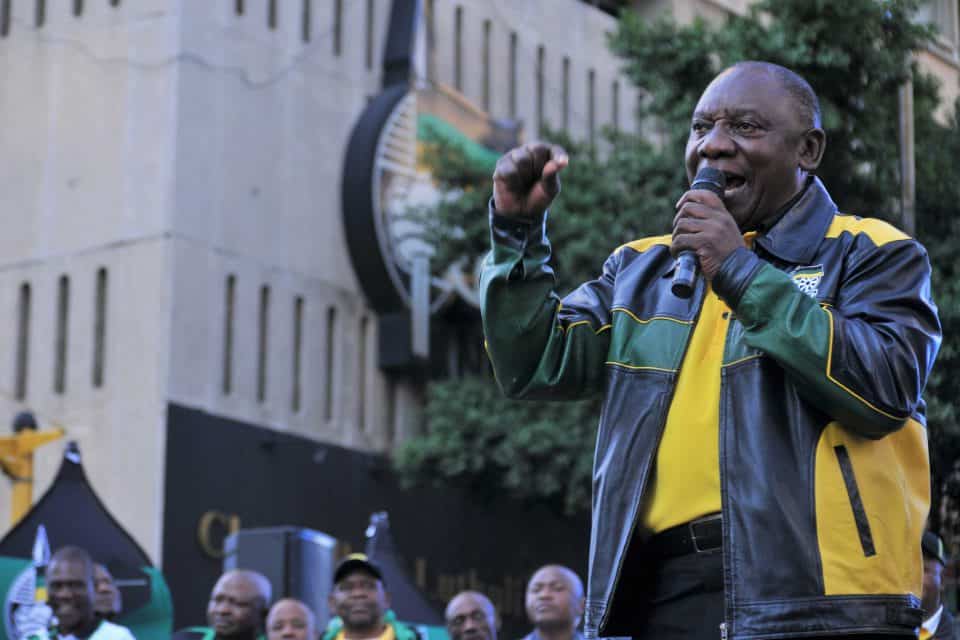The crisis in local government
President Ramaphosa has promised a ‘new dawn’ with an emphasis on improving the quality of public services to achieve transformation. But there will be pushback from within his own party, and parti…
Author:
20 May 2019

The high stakes factional battle in the ruling party and then, of course, the election, have focused attention on national government. But last week two events – the arrest of the mayor of Durban and the latest debacle in the intractable crisis in Makhanda – put the escalating crisis of local government in the spotlight.
When the new system of governance was set up after apartheid, local government was often imagined as the part of the state that would be closest to the people, most open to engagement and best equipped to understand and meet people’s most urgent needs.
It has become something entirely different. In August last year the national government admitted that only 7% of municipalities are functioning to a reasonable standard. Last year, the consolidated municipal audit was grim. Only 33 out of 257 councils received a clean bill of health. When he released the outcomes of the 2016/17 local government audit the auditor-general, Kimi Makwetu, remarked that it showed there was an “overall deterioration.”
The scale of the rot is devastating. When the VBS scandal broke it became apparent that 14 municipalities had invested a total of R1,57 billion with the bank. Across the country large cities, like Durban and Pietermaritzburg, as well as small towns, like Makhanda, are in crisis. In many places references to the stench of corruption are not a matter of using a tired metaphor. One can literally smell the stench of uncollected rubbish, or raw sewerage, on the streets in many of our towns and cities.
A systemic crisis
It is no exaggeration to say that we are dealing with systemic failure, and a systemic crisis.
This crisis is not solely about the inefficiency of the local state. In some parts of the country grassroots activists have long described the system of councillors, ward committees and party branches as a mechanism of top-down control, sometimes armed and violent, rather than bottom-up democracy. The situation is particularly acute in KwaZulu-Natal, where the phrase “gangster councillor” became a reality in grassroots politics long before the idea of the “gangster politician” entered the elite public sphere.
Moreover, corruption is often openly campaigned for and legitimated by a class of politicians, bureaucrats and business people for whom the state offers a road to personal wealth. It is an organised collective project rather than a simple accumulation of personal moral failings. It has also become the basis for how many significant alliances are formed within the ruling party. Any serious attempt to undo the normalisation of corruption will run into a serious opposition from within the ANC. It will also be opposed by the EFF.
In Durban it is reported that the Hawks are planning to move against 62 councillors, along with the mayor. It is difficult to imagine that if action is taken against this many elected officials in one municipality there will not be some sort of concerted pushback from within the ANC. It is also difficult to see how the party could, at the local level, effectively deal with a pushback from within its own structures at this sort of scale.
Cyril Ramaphosa is promising a “new dawn’’ from his administration with a focus on the implementation of the National Development Plan (NDP). The plan, which is not without its critics, identifies that the “improvement of the quality of public services is critical to achieving transformation”.
It is certainly true that the efficient and effective provision of basic services, and the kinds of democratic engagement required to ensure that the state is meeting people’s actual needs, requires local government to work properly. It requires well-run and efficient municipalities willing to engage in democratic deliberation with their most marginalised residents.
Confrontation looms
But achieving this will require a serious political confrontation with the forces that benefit from corruption, and which have developed an ideology, and a set of organisations, to legitimate their looting from the public purse. Effectively taking on this battle will require considerable political will, and real political force.
The elitism of much of the discussion of corruption that is dominant in the elite public sphere often occludes a signal fact: since 2004 mass protest, often targeted at local councillors, and often taking the form of the road blockade, has become a regular feature of our politics. This protest takes dynamic and contradictory forms, and different political forces have sought to capture it. It has and may well continue to take both progressive and reactionary forms. But it does contain, among other features, a fundamental popular rage at corruption.
In electoral terms that rage has often expressed itself via abstentionism, sometimes organised and sometimes not. But at the level of local politics it has frequently expressed itself in terms of a real show of popular force. Of course displays of popular anger are no silver bullet. They can be episodic and the pushback from local elites has often been brutal.
This was driven home to a national audience on 12 April 2011 when the television news showed Andries Tatane being beaten, and eventually killed by the police, during a community protest in Ficksburg, a small cherry farming town in the Free State.
Related article:
Nonetheless there is a significant popular anger at corruption, an anger that has expressed itself most effectively at the local level, and which could provide an effective opposition to the forces that misrepresent the looting of the public purse as liberation. Indeed, this popular anger has already removed a number of officials from their positions ranging from local councillors to former North West Premier Supra Mahumapelo.
Clean-up promise compromised
But Ramaphosa’s stated commitment to clean up corruption is enmeshed with a commitment to capital that can only result in further violence against the most oppressed people in society. In rural areas the ANC’s enthusiasm for alliances between traditional authority and mining companies can only result in further devastation. In the cities the idea that land should be allocated on the basis of private ownership and profit can only result in more men with guns being sent out to attack people seeking to make their lives on scraps of wasteland.
We should not forget that on 13 February 2011, two months before Tatane was killed, two people were killed by the police during a protest in another small town, Ermelo in Mpumalanga. A number of people were arrested, and subject to torture including electric shocks and having their heads wrapped in plastic and forced under water.
Bheki Cele was in town that day. One of the protestors, Dumisani Mahaye, reported that he was forced, under torture, to name opponents of David Mabuza as people who had paid him to organise the protest. Bongani Phakathi reported that he was interrogated for 14 hours by the head of the Hawks in Mpumalanga, General Simon Mapyane, who wanted to know how the protest had been funded.
This kind of thing is not all in the past. Since Gumede’s arrest Abahlali baseMjondolo, the only sustained movement to have emerged from the wave of popular protest that began to hit critical mass in 2004, have had their Durban office broken into in a way that very strongly suggests that information rather than money was being sought. Two of the occupations affiliated to the movement in Durban have been subject to armed and unlawful evictions by an habitually criminal and violent municipality.
Under these circumstances it seems unlikely that Ramaphosa will be able to draw on the groundswell of popular anger against corruption, or to assume that everyone aside from the corrupt will be cheering on the Hawks, or hold any confidence in his deputy. This will leave him, and his project, vulnerable to pushback. This will be particularly evident at the local level, where, of course, the crisis of local government festers.

